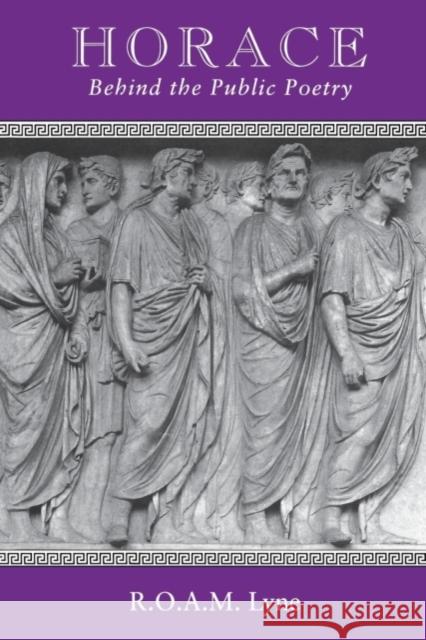Horace: Beyond the Public Poetry » książka
Horace: Beyond the Public Poetry
ISBN-13: 9780300204698 / Angielski / Miękka / 2013 / 238 str.
This fascinating study of one of the greatest poets of the Augustan age sheds new light on Horace's works, combining literary analysis with an investigation into the poet's social and political circumstances. Lyne focuses on the poet's relations with his patron Maecenas, with the Emperor Augustus and with other grandees. Describing his background, the book considers how and why Horace came to rely on patronage, and looks at the nature of that patronage. It identifies the point at which Horace adopted the role of political poet and shows how he evolved a public poetry for his particular society. Horace was a master of personal insinuation, as well as a fine maker of public poetry. Lyne reveals him a master, too, in the art of ordering his works, positioning his poems with skill and subtlety. Looking closely at poems from the 'Satires', 'Odes' and 'Epistles', Lyne demonstrates how Horace neatly balanced deference to the great with careful assertion of his own social and political standing. He finds instances where Horace teases his original recipients - and his wider audience. He investigates why the poet set aside his great political lyric in 23 B.C. and resumed it in 17 B.C..Examining Odes in Book 4, Lyne contends that behind the public face, Horace exhibits resentment, recording views that undermine earlier patriotic statements. Horace's political utterances are always interesting, invariably well-composed, often independent. His is the public voice of Augustan society, and his literature reflects the pressures and nuances of that society, as well as revealing an image of the poet himself. R.O.A.M. Lyne was Fellow and Tutor in Classics at Balliol College, Oxford. Among his books are 'Ciris: A Poem Attributed to Vergil' (1978), 'The Latin Love Poets, from Catullus to Horace' (1980), 'Further Voices in Vergil's Aeneid' (1987), 'Words and the Poet: Characteristic Techniques of Style in Vergil's Aeneid' (1989).











